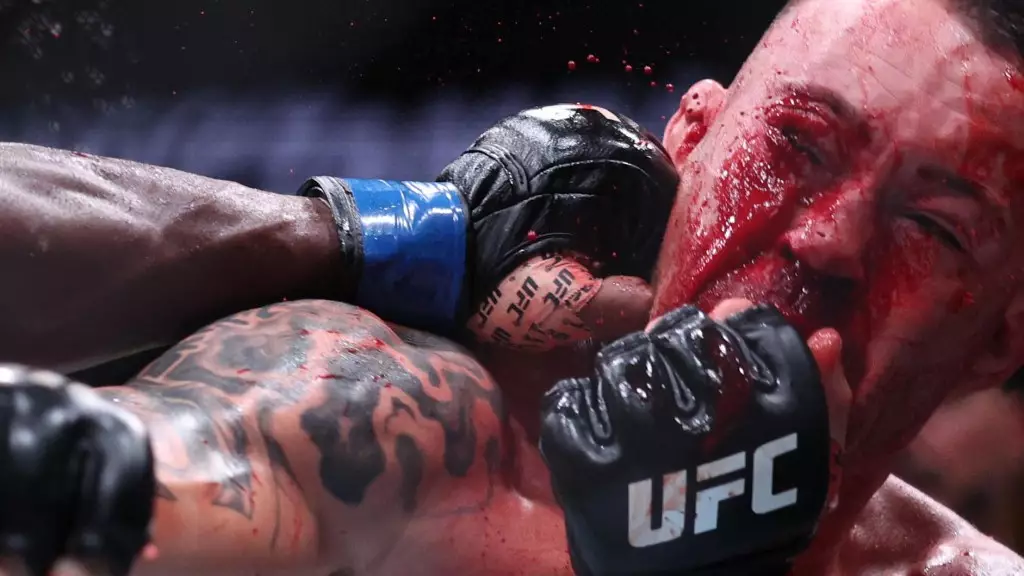In the realm of mixed martial arts, few rivalries captivate fans more than that between Belal Muhammad and Colby Covington. Following Covington’s recent defeat at UFC on ESPN 63, Muhammad took to the airwaves to express his satisfaction over Covington’s misfortune. Watching Covington succumb to a doctor stoppage TKO at the hands of Joaquin Buckley was a moment many perceived as poetic justice, particularly given Covington’s previous penchant for trash talk. Muhammad’s open delight in Covington’s struggles provides an insight into the intense rivalry and the shifting dynamics within the welterweight division.
Covington’s bout witnessed him suffering a brutal third-round stoppage, attributed largely to a significant laceration on his eyelid. The doctor’s intervention seemed almost a formality given the unrelenting barrage that Buckley unleashed throughout the fight. Muhammad’s pointed remarks about Covington’s performance reflect a broader sentiment within the MMA community regarding Covington’s fighting style. Once celebrated for his relentless cardio and grappling prowess, Covington’s lack of adaptability and creativity became glaringly obvious. Critics, including Muhammad, argue that Covington’s limitations in striking and grappling were exposed against a newer wave of fighters who have evolved past the tactic he relies upon.
The victory by Joaquin Buckley underscores a crucial transition in the welterweight division. Fighters such as Buckley embody a new breed of MMA athletes who possess a more versatile skill set, combining striking, grappling, and tactical intelligence. Muhammad’s comments insinuate that the game has evolved, leaving fighters like Covington susceptible to being outperformed. This shift is not merely about technique; it speaks volumes about the mental and physical evolution that contemporary fighters are embracing. As current contenders develop their own specialties while learning from the past, they are ushering in an era where traditional tactics fall short.
As Belal Muhammad pointedly stated, the time appears ripe for questioning Covington’s position amongst the elite of the welterweight division. His performances have raised doubts about his capabilities to compete with top-tier opponents. With the landscape of MMA ever-changing and the emergence of skilled challengers, Covington’s standing is tenuous at best. Muhammad’s confidence in asserting that Covington doesn’t belong among the top fighters illustrates the growing perception that the once-feared competitor may have reached his zenith.
Belal Muhammad’s critical stance toward Covington serves as a reminder of the often unforgiving nature of professional sports, where popularity and bravado can quickly dissipate amidst underperformance. As Covington contemplates his next steps, whether it’s a return to the drawing board or retirement from the sport, the narrative surrounding him is shifting. Muhammad’s statements not only challenge Covington’s past as a once-dominant force but also spark a larger conversation regarding the evolution of fighting styles in the UFC. The welterweight division stands as a testament to this evolution, and it is clear that the implications of Covington’s defeat will extend far beyond just one fight.

